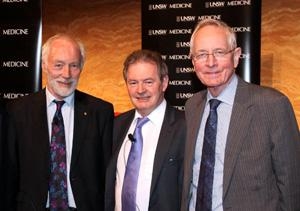Targeting mental illness in the young
Early intervention programs for young people with mental health issues could save lives, alleviate suffering and save millions of dollars a year, high-profile speakers have told an audience at the UNSW Medicine Dean’s lecture.


